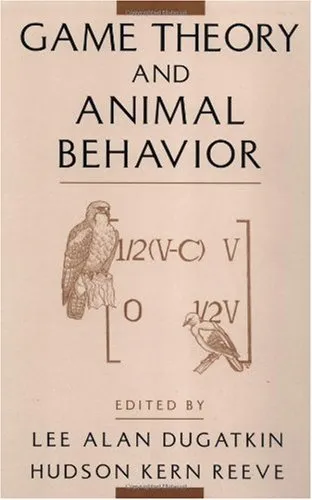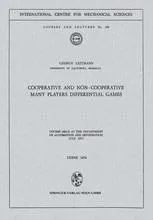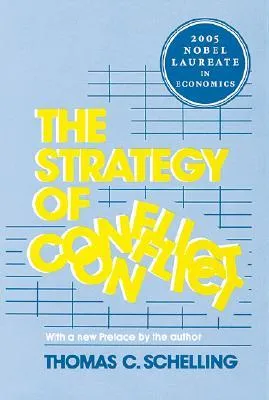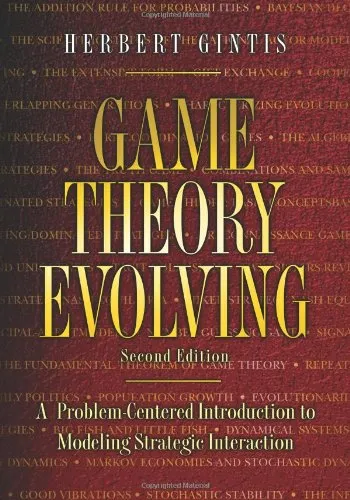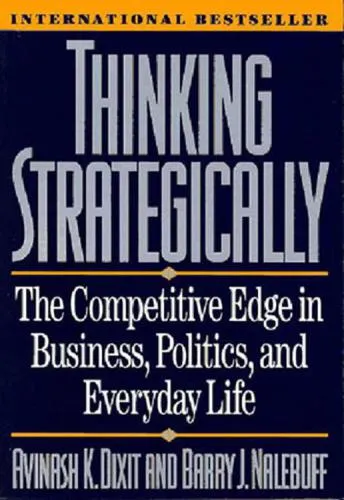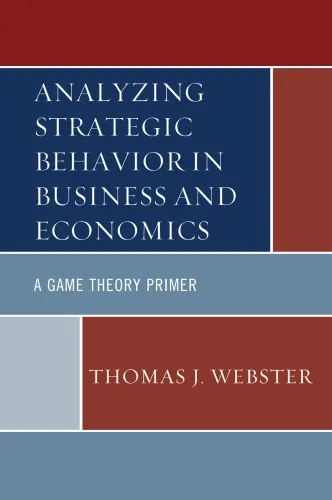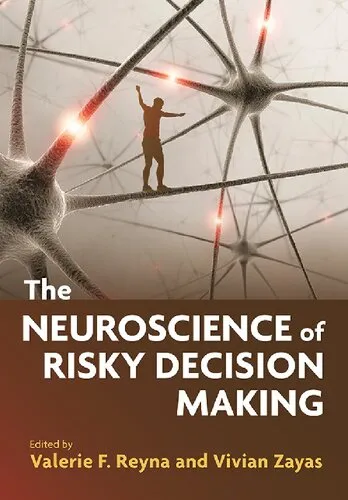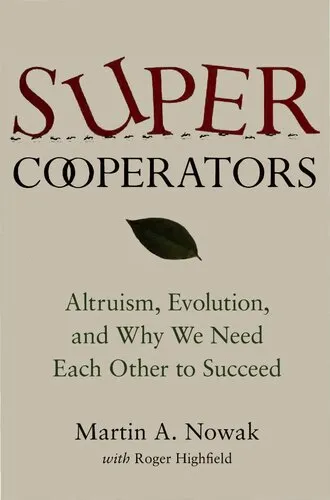Game Theory and Animal Behavior
4.5
Reviews from our users

You Can Ask your questions from this book's AI after Login
Each download or ask from book AI costs 2 points. To earn more free points, please visit the Points Guide Page and complete some valuable actions.Related Refrences:
Game theory, a critical interdisciplinary field, fuses elements of mathematics, economics, and biology to unravel the complexity of decision-making processes across individuals. In Game Theory and Animal Behavior, co-authors Lee Alan Dugatkin and Hudson Kern Reeve bridge the gap between abstract theory and empirical biology, carefully illustrating how game theory applies to the nuanced behaviors of animals. With rich examples, cutting-edge research, and lucid explanations, this book offers readers an insightful exploration of how cooperation, competition, and conflict shape the natural world.
Summary of the Book
At its core, Game Theory and Animal Behavior explores how animals—from insects to mammals—use strategic interactions to navigate their ecological and social environments. Dugatkin and Reeve argue that game theory is an indispensable tool for understanding these behaviors. The book delves into various game-theoretic concepts such as the Hawk-Dove game, prisoner's dilemma, and evolutionary stable strategies (ESS). It illustrates these theories with captivating real-world examples, including how birds resolve competition over food, how fish develop strategies for mating, or how cooperation is maintained in species facing collective action problems.
The book begins with an in-depth introduction to the principles of game theory, assuming no prior knowledge, which makes it accessible to both novice and expert readers in ethology. Gradually, it moves into advanced topics, covering both classical game theory and its modern, more biologically centered offshoot known as evolutionary game theory. The authors explore critical questions such as: Why do certain behaviors become dominant in a population? How do animals negotiate over scarce resources? Why does altruistic behavior arise in some species yet remain rare or absent in others?
Key Takeaways
- Game theory provides a structured framework to analyze animal behavior, where individuals aim to maximize benefits while minimizing costs.
- Evolutionary stable strategies (ESS) play a key role in maintaining or modifying population-level behaviors over time.
- Both conflict and cooperation in animal interactions can often be explained using simple, well-defined game-theoretic models.
- Empirical examples, such as vampire bats sharing blood meals or wasps policing one another, underline the practical application of theoretical predictions.
- Understanding animal behavior through game theory reveals broader insights into human social structures and decision-making processes.
Famous Quotes from the Book
"Behavior is not haphazard; it is strategic. Animals make decisions that, consciously or unconsciously, weigh the costs and benefits of their actions."
"Game theory provides not only an analytical lens but also a predictive component—allowing us to hypothesize, test, and refine our understanding of how and why animals act the way they do."
Why This Book Matters
Game Theory and Animal Behavior is a landmark work that bridges two traditionally disparate fields—behavioral biology and game theory. Its importance lies in its practical application and intellectual contribution to multiple disciplines. For biologists, it provides a rigorous, quantitative method to analyze animal behavior. For theorists, it offers real-world validation of abstract principles. Its influence extends beyond academia, informing disciplines like psychology, ecology, and even the social sciences. By understanding the strategies animals use to survive and reproduce, researchers can draw parallels between animal instincts and human decision-making. This cross-disciplinary approach makes the book an essential resource for anyone interested in the science of behavior.
In a world where competition for resources is ubiquitous—whether among animals in their natural habitats or humans in economic markets—the lessons from this book carry far-reaching implications. With its clarity, depth, and accessibility, Dugatkin and Reeve’s work ensures game theory remains a cornerstone concept for understanding complex interactions in the biological and social realms.
Free Direct Download
You Can Download this book after Login
Accessing books through legal platforms and public libraries not only supports the rights of authors and publishers but also contributes to the sustainability of reading culture. Before downloading, please take a moment to consider these options.
Find this book on other platforms:
WorldCat helps you find books in libraries worldwide.
See ratings, reviews, and discussions on Goodreads.
Find and buy rare or used books on AbeBooks.
1516
بازدید4.5
امتیاز0
نظر98%
رضایتReviews:
4.5
Based on 0 users review
Questions & Answers
Ask questions about this book or help others by answering
No questions yet. Be the first to ask!
